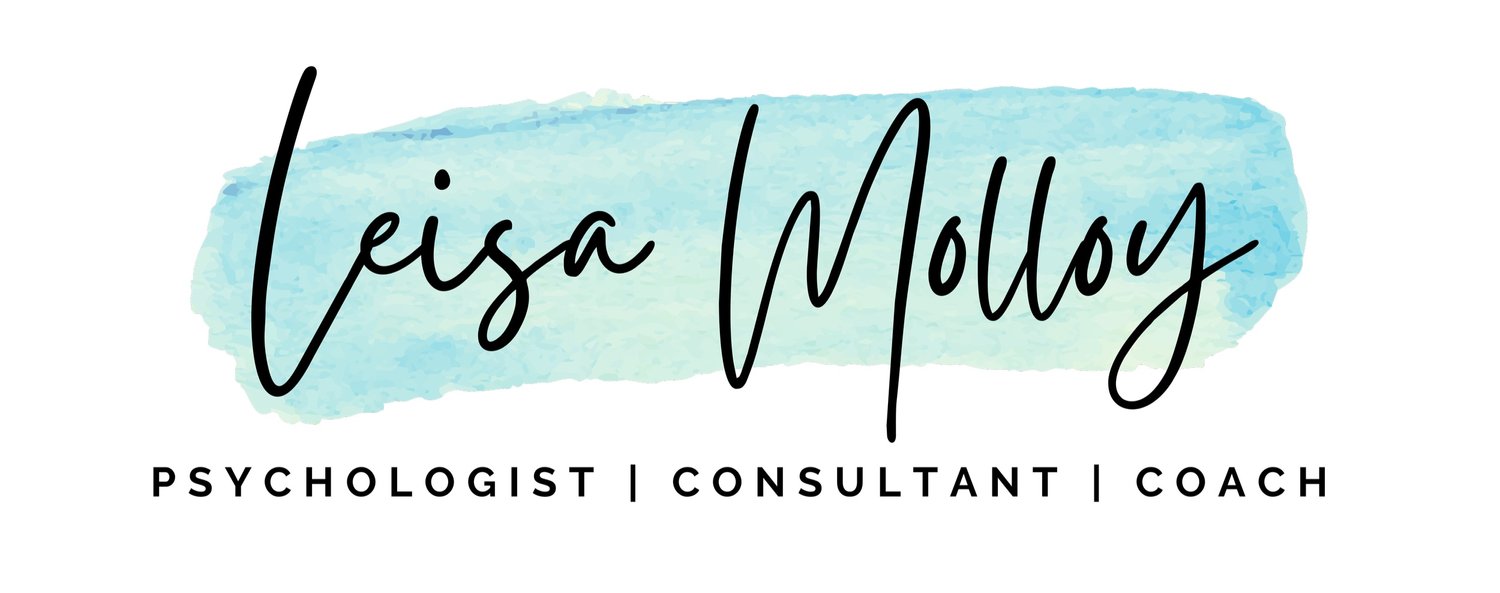On Accountability, Self-Awareness, and the Expense of Being Yourself
Every month I send out a newsletter including resources, freebies and insights for leaders who want to be more skilled, self-aware and ‘human’ in their approach to handling relationships and navigating important workplace conversations. Most include topics relating to trust, psychological safety, emotional intelligence, communication, and connection.
This is the content from the December 2020 newsletter - enjoy! And be sure to sign up for the newsletter if you enjoy this kind of content :-)
Is it expensive to be yourself at work?
As some of you may know, I've recently undertaken a certification in the 4 Stages of Psychological Safety framework developed by Dr Timothy Clark, who wrote this book on the topic. I was particularly interested in accessing the range of tools for practitioners (like me!) to use with teams who want to measure and improve levels of psychological safety.
I love this article by Timothy Clark about the "golden question" that can be asked to reveal the level of psychological safety within a team - Is it expensive to be yourself at work? You'll read about the 4 different stages revealed by Dr Clark's research, and the self-censoring instinct that kicks in when we don't feel safe. Finally, the article includes 12 insightful questions that can be used as a kind of self-assessment when thinking about your own personal experience.
You can read the article here on Forbes (after you close all of the annoying popups!)
How self aware are you, really?
One of the best books I've read in recent years is Insight by Tasha Eurich, which was described by some as the "first definitive book exploring the science of self-awareness". For a nerdy psychologist like me it was fascinating - and highly informative given the kind of work I do. This article provides an overview of some key findings in the book, including some interesting statistics on how many people really do seem to be self-aware, and the fact that experience can often reduce self-awareness. You'll also read about the two different types of self-awareness and the relationship between them - or lack of, which is one of the key takeaways!
Could your virtual onboarding process be improved?
Throughout the pandemic I've had a lot of conversations about the challenges associated with remotely onboarding new hires - from leaders, HR, and the employees themselves. Many feel that the lack of 'in person' contact has made it more difficult for new starters to build relationships, adjust to cultural norms, and absorb some of that contextual information often picked up by working alongside others (a kind of informal "osmosis", if you like). This article from the Atlassian blog includes some lessons learned from virtually onboarding 1200+ new people in recent months. In particular, I like the suggestions around rotating "buddies", avoiding cognitive overload, and intentionally creating opportunities for personal connection. You can read the Atlassian article here.
P.S. Another suggestion in the article is to have everyone create a personal User Manual as a way of learning more about each other. Given that I've seen this work well, I've included it below as this month's helpful tool / resource.
Do you struggle with holding people accountable?
This podcast interview is full of great advice on encouraging greater accountability through clear and regular feedback conversations. More specifically, Jonathan Raymond shares an accountability framework that can be used as a guide or 'map' in tackling these discussions. I love the practical suggestions for leaders who feel unsure about what to say, or how to actually raise an issue in the first place.
I use a similar approach in my leadership development workshops by sharing structured "conversation guides", along with examples of actual words and phrases for leaders to try out and adapt, giving them a good starting point. For me, listening to Jonathan resulted in lots of out-loud "Yes...exactly!" type statements (despite being out on a walk!) as his advice is really practical and sound.
You can find the episode here on the Coaching for Leaders website, or here via Spotify or Apple podcasts.
Have you mastered the art of saying "no"?
I also loved the really specific, practical suggestions in this conversation about handling those situations where you want to say "no" to something, but are concerned about creating conflict or disappointment. I think Bruce Tulgan does a good job of exploring both the practical elements of handling these situations 'in the moment', and the barriers that often existing to saying "no" in the first place (e.g. concerns about our reputation). The episode title is a good reflection of how tricky it sometimes feels to master "The Subtle Art of Saying No".
You can find the episode here on the HBR IdeaCast, or here on Spotify or Apple podcasts. If you enjoy the episode you might also like to review the related HBR article here.
What insights would you share about yourself?
As mentioned above, the resource I'm sharing this month is Atlassian's downloadable "User Manual", which can be used by teams to increase connection and understanding. While the template includes a range of pre-existing questions, it's really easy to adapt and customise. I think it's a simple but effective way to open up conversations about individual preferences and ways of working - how people prefer to learn, communicate, manage their time, and receive feedback (to give a few examples).
I've seen a few versions of these documents floating around, with some teams using them as a kind of "reset" after making the shift to remote / hybrid working arrangement. In fact, I'll probably customise the manual for a few teams I'm currently working with!
You can find downloadable versions of the User Manual along with the accompanying instructions here on the Atlassian website.
Thanks for reading! Feel free to share with anyone who might find these insights helpful, or want to sign up and join the community.






